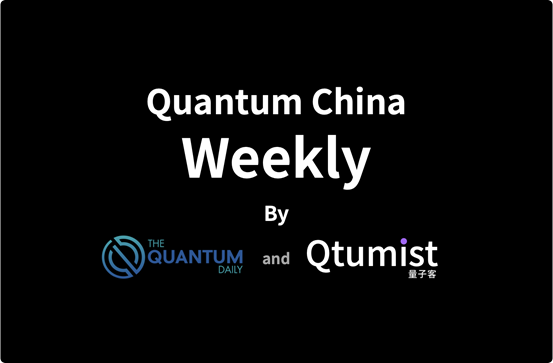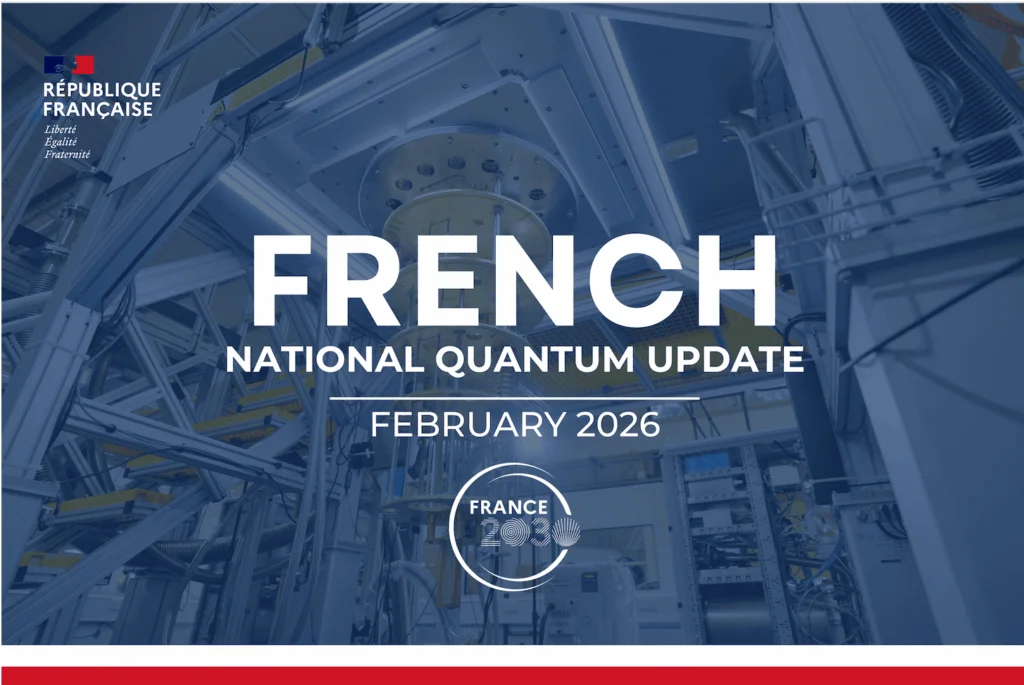
This week, in the business sector, the Origin Quantum open source community completed a new revision and went online, and at this stage the community is soliciting feedback suggestions from the public. SpinQ became the vice president of Shenzhen Computer Society, and Turing Quantum recently settled in Shanghai Danshui River Science and Technology Park.
In the direction of scientific research, researchers from the Key Laboratory of Quantum Information of the Chinese Academy of Sciences made important progress in the research of microwave resonant cavity-semiconductor quantum chip coupling in cooperation with Origin Quantum.
The research team of University of Science and Technology of China (USTC) realized for the first time a multi-mode multiplexed quantum relay fundamental link, demonstrating the accelerating effect of multi-mode multiplexed quantum communication and achieving quantum entanglement of two solid-state memories, providing a new implementation scheme for the construction of high rate and large scale quantum networks.

The University of Science and Technology of China (USTC) is recruiting for the Quantum Computing 2021 seminar, which aims to select talented junior undergraduates for early entry into quantum computing research teams to conduct scientific research activities.
The Laboratory of Quantum Computing and Algorithm Theory at the Institute of Computing, Chinese Academy of Sciences is recruiting researchers in the areas of quantum computing physical experiments, quantum computing theory, theoretical computers and machine learning theory and applications.
The 17th National Symposium on Low Temperature Physics opened successfully, where the Sir Martin Wood Prize for Physical Sciences in China was awarded. Researcher Jin Kui from Institute of Physics, Chinese Academy of Sciences, Professor Jiang Ying and Professor Li Yuan from Peking University received the awards.
Business
Origin Quantum Open Source Community Newly Revamped and Launched
Origin Quantum started to establish the Origin Quantum Open Source Community in 2018, which has recently completed a new revamp and gone live. The community aims to generate more quality content and expose practitioners to this quality content through the community for valuable exchanges and a more robust quantum computing product ecosystem. The community is currently soliciting feedback suggestions from the public.
Origin Quantum finished developing Quantum Bayesian Network application and went live on the cloud platform
Quantum Bayesian Network (QBN) is good at handling a part of complex stochastic systems mainly in security systems, and is an important application direction of quantum computing in many industries with physical device networks or virtual security network systems, such as finance and Internet. The application of Quantum Bayesian Network (QBN) has been developed recently to demonstrate the technical support scope and some basic functions of QBN, which is now online to the Quantum of Origin application cloud platform.
Application: https://qcloud.originqc.com.cn/main/bayesianNetwork
SpinQ became the vice chairman of Shenzhen Computer Society
SpinQ and the Shenzhen Computer Society jointly held a seminar and exchange meeting on quantum computing was successfully held. During the event, SpinQ officially became the vice chairman of the Shenzhen Computer Society, SpinQ said it will continue to promote enterprise cooperation in the field of quantum computing industry, academia and research, and build a good ecological environment.
Turing Quantum settled in the core area of Shanghai Science and Technology Park
Turing Quantum recently settled in Shanghai Danshui Riverside Science and Innovation Park, which creates an opportunity for subsequent cooperation between Shanghai Jiao Tong University and Shanghai Minhang District. Turing Quantum’s office in the park will cover the most core R&D functions such as labs and algorithm research teams.
Research
Chinese scholars detect new phenomenon of semiconductor quantum dots modulated by microwave-driven interference
Guo Guoping and Professor Cao Gang from the Key Laboratory of Quantum Information, CAS, in collaboration with Origin Quantum, have made important progress in the study of microwave resonant cavity-semiconductor quantum chip coupling. They have used the microwave resonant cavity to detect a new phenomenon of interference of semiconductor quantum dots modulated by microwave drive.
Paper: https://journals.aps.org/prb/abstract/10.1103/PhysRevB.103.205428
Chinese scholars realize novel quantum coherent manipulation of solid-state spins
Academician Guangcan Guo’s team at the Chinese University of Science and Technology (CUST) has made important progress in the study of silicon carbide color-centered spin manipulation. The team, in collaboration with researchers at the Wegener Center for Physics Research in Hungary, has achieved the first coherent manipulation of solid-state spin systems with anti-Stokes excitation in the international arena, a technique that has important uses in quantum information processing and quantum precision measurements.
Paper: https://www.nature.com/articles/s41467-021-23471-8
Chinese scholars realize multi-mode quantum relay for the first time
The research group of academician Guangcan Guo’s team at the University of Science and Technology of China (USTC), Chuanfeng Li and Zongquan Zhou, has achieved the first multi-mode multiplexed quantum relay fundamental link, demonstrating the accelerating effect of multi-mode multiplexed quantum communication and achieving quantum entanglement of two solid-state memories, providing a new implementation scheme for the construction of high-rate and large-scale quantum networks.
Paper: https://www.nature.com/articles/s41586-021-03505-3
Chinese scientists achieve quantum dominance in sensor field
Chinese researchers at the University of Arizona have experimentally demonstrated the advantages of quantum computing systems over classical computing systems. The experiments show that equipping sensors with quantum entanglement will give them an advantage over classical sensors: the possibility of generating errors can be reduced by a certain margin, a small but crucial margin.
Paper: https://journals.aps.org/prx/abstract/10.1103/PhysRevX.11.021047
Education
USTC’s Quantum Computing 2021 seminar is recruiting
The University of Science and Technology of China (USTC) is currently recruiting for its Quantum Computing 2021 seminar, which aims to select talented junior undergraduates for early entry into quantum computing research teams to conduct scientific research activities, sponsored by Huawei.
Conference
2021 National Symposium on Low Temperature Physics Opens with Sir Martin Wood China Physical Sciences Award
The 17th National Symposium on Low Temperature Physics opened, which is sponsored by the Low Temperature Physics Committee of the Chinese Physical Society and hosted by Zhejiang Normal University and the Institute of Physics, Chinese Academy of Sciences. Conference sponsors include Oxford Instruments, QuantumCTek, Origin Quantum, and CIQTEK. The Sir Martin Wood Prize for Physical Sciences in China was also awarded at the conference. Researcher Jin Kui of the Institute of Physics, Chinese Academy of Sciences, Professor Jiang Ying and Professor Li Yuan of Peking University received the awards.
People
Laboratory of Quantum Computing and Algorithm Theory, Institute of Computing, Chinese Academy of Sciences is recruiting researchers
The Laboratory of Quantum Computing and Algorithm Theory, Institute of Computing, CAS, is recruiting researchers, including but not limited to Assistant Researchers (CAS Special Research Assistant A), with research interests in quantum computing physics experiments, quantum computing theory, theoretical computers, and machine learning theory and applications.
For more market insights, check out our latest quantum computing news here.















